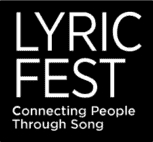 Interview with pianist Harold Evans:
Interview with pianist Harold Evans:
How did you grow to play piano and how did you start improvising?
I was fortunate to be born with what musicians refer to as “perfect pitch”, i.e., the ability to identify musical sounds simply by hearing them and not actually by seeing them on the printed page. After I began studying piano at age five, I would listen to the popular music of my day and try to copy the sounds I heard on the radio. This eventually led to my being invited to play with older and more mature musicians in a popular small dance band in the coal regions of Pennsylvania (sometimes in places where a 15 year-old boy should not be permitted to perform). I noticed that these musicians would take melodic and rhythmic liberties with the music that was printed on my score, and I eventually learned that this sort of improvisation was called Jazz.
My parents had the good sense to make certain that I continued my “classical” piano lessons, but I was allowed to parallel this with the wonderful creative world I was discovering through improvisation – a world which permitted me to finance practically all of my undergraduate education.
What do you think about classically trained vocalists taking up Crossover repertoire? What would you expect from a singer performing in this style?
…in a word: HONESTY!
Whether singing a Broadway melody, a jazz tune or a classical aria or art song, a singer should sing with healthful, good singing technique, beauty of sound and declamation, and with interpretive gestures appropriate to the style. Depending on the genre, the singer may employ stricter or looser adherence to the printed score or may color the voice in a particular manner, but he/she must always be able to offer an honest and appropriate representation of the music and the word.
How do you approach creating a Broadway interpretation of any piece, and how does it differ (if it does) from how you would interpret classical works?
Above all, I would encourage the singers to sing all genres of music with wortgestaltung – a German word, which, loosely translated, means pronouncing a word in such a way that its true and full meaning is immediately evident to the listener. For example: probably the three most difficult words to say in the English language are “I love you,” if you don’t really mean them. The singer can make this phrase convincing if he/she follows a simple rule: anticipate and elongate the principle consonant in the most important word of the phrase. Try it: say “I love you,” and then say “I llllove you.” Does it work???
You return to Lyric Fest after being a part of two previous programs with us. Please tell us of your experiences and highlights with Lyric Fest.
At the extreme risk of sounding solicitous…what a great joy to work with the creative spirits behind Lyric Fest – Suzanne, Laura and Randi – and the wonderful communicative artists that they bring to the Fest concerts!
You know, unlike in larger musical forms, in a song (popular or classical) the artist has the challenge and the opportunity to create a whole world of emotion in a brief two to five minutes. These people DO IT over and over – they’ll give you a terrific roller coaster ride! In addition, the brief explanations provided in the program notes or sometimes delivered by the singers, bring the listener inside the mind of both the creator and the re-creator, i.e., the singer.
I sincerely believe that Lyric Fest, despite being in existence only since 2003, has already become one of Philadelphia’s treasured institutions.
If you had a chance to address our potential audiences, what would be your message about the “Night and Day” program?
If you love the sound of the human voice (and who doesn’t?), by all means come to Lyric Fest’s Night and Day. You’ll have the opportunity to hear extraordinarily beautiful voices, capable of expressing an infinite variety of contrasting emotions in a potpourri of vocal colors and musical styles (i.e. Classical arias and art songs, Broadway show-tunes, Pop and Jazz melodies) – Crossover music in every sense of the word! Vive la différence! OR, as another French expression states: plus ça change, plus c’est la m'me chose (the more things change, the more they stay the same).
By Inna Heasley. November 2010
